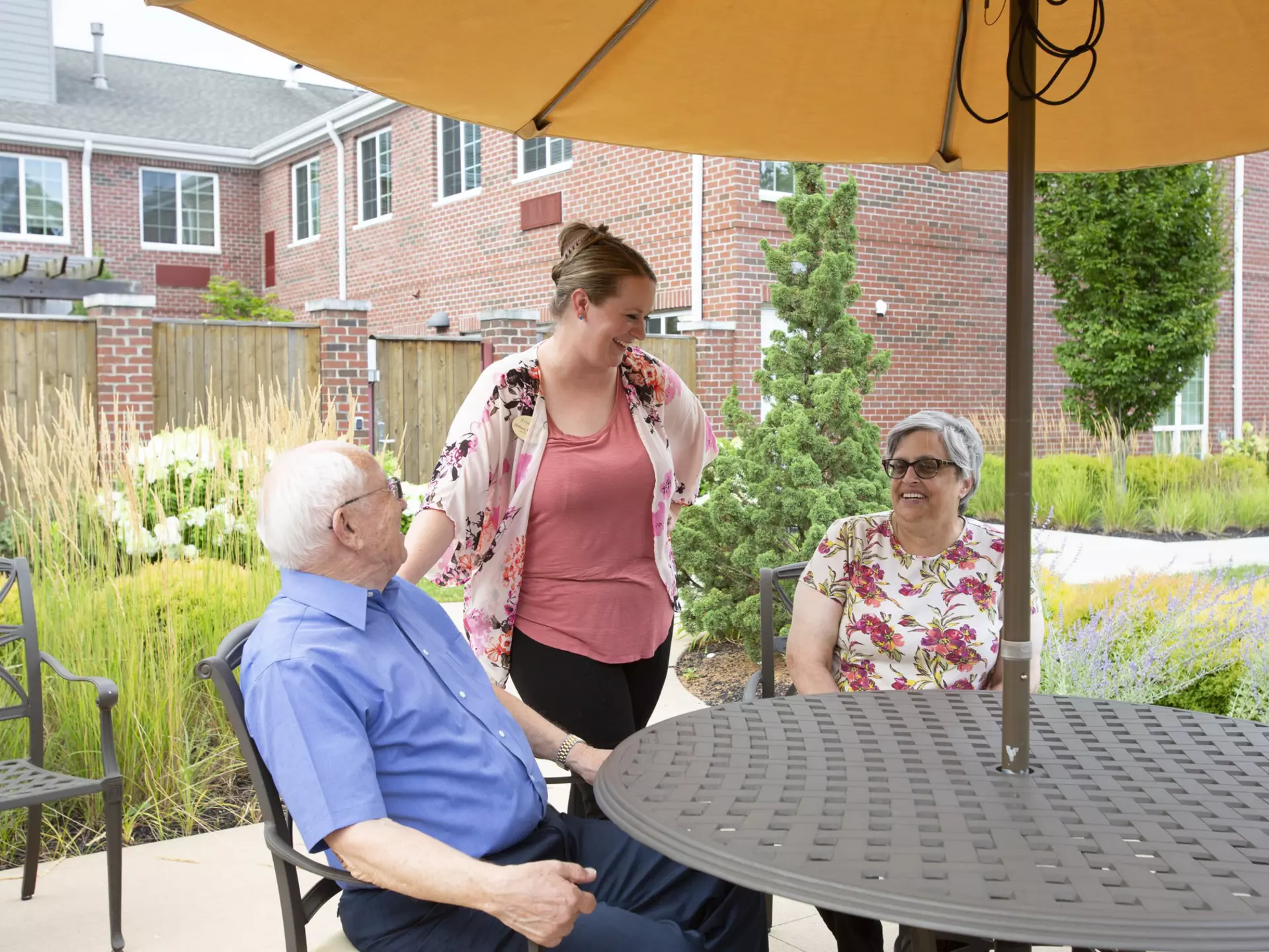Assisted living offers seniors the support they need, along with a host of wonderful benefits that can help enhance their quality of life. But, even with all its benefits, moving into an assisted living community is a big life decision, and it’s completely normal to have questions or wonder if the timing is right for you or someone you love.
In this blog, we’ll discuss the average age of assisted living and how this information may help guide your decision when considering additional support services for you or your family member’s specific needs.
At What Age Do Most People Move to Assisted Living
Families often ask, “At what age do most people move to assisted living?” According to the National Center for Assisted Living, more than 50% of assisted living residents are 85 or older, and nearly 30% are between the ages of 75 and 84.
However, the aging experience looks different for every senior, and people move into assisted living for many different reasons at various points in their lives. Some may wait until they need assistance with activities of daily living (ADLs), while others choose to move in earlier to enjoy all the great benefits assisted living has to offer.

Factors That Influence When Someone Moves to Assisted Living
While the numbers show that many seniors move into assisted living later in life, age isn’t the only factor that matters.
Let’s explore some key reasons why assisted living might be the right choice for you or someone close to you:
- Proactive Planning: Many older adults choose to move into assisted living even before they need daily support. According to studies, nearly 6% of assisted living residents are 65 or younger. Moving in early can save families from having to make decisions during a health emergency. Plus, it allows you or your family member to enjoy the full benefits of assisted living for longer.
- Difficulty With Activities of Daily Living (ADLs): It’s natural for older loved ones to need extra help as they age. If you’ve noticed your loved one frequently having trouble with ADLs, like bathing, using the bathroom, or cooking meals, it could be a sign that they may benefit from additional support.
- Social Isolation: Spending time with others has been shown to offer many health and wellness benefits at any age. If your loved one could use more connection in their day-to-day life, an assisted living community may offer daily chances to socialize and build meaningful relationships.
- Increasing Safety Concerns: While many seniors wish to remain in their homes, it’s important to ensure they can do so safely. Frequent falls, wandering, or trouble managing medications may indicate that your family member is no longer safe living alone.
- Financial Aspects: Cost is often an important consideration when considering additional support services. In many cases, families may find that assisted living is a more cost-effective option, especially when daily support is needed. Some assisted living communities also offer flexible pricing based on your or your loved one’s specific needs and situation.
- Caregiver Burnout: While caring for an aging parent can be deeply fulfilling, you don’t have to do it all alone. If you’re struggling to keep up with your loved one’s needs at home, an assisted living community can offer the right level of support.
Worsening Chronic Conditions: As conditions like diabetes or heart disease progress, it may become harder to manage your loved one’s needs at home. If they need more consistent assistance or monitoring, assisted living might be a helpful solution. - Sudden Health Decline: Sometimes, a fall, stroke, or unexpected hospitalization may change a person’s ability to live independently. In these situations, assisted living can provide a safe and supportive environment for recovery or ongoing support.

What Age Is Best for Assisted Living?
The best time to move is when you or your loved one feels ready. However, making the move earlier may allow you or your family member to enjoy the many wonderful benefits of assisted living for longer. Plus, moving into a new community while you’re still active and capable can make the transition feel less overwhelming.
Moving Between Levels of Support
Your family member may require a higher level of support as their needs progress. However, the idea of starting over in a new community can feel overwhelming for many seniors. Some assisted living communities offer a broad range of support services that allow residents to access multiple levels of support without needing to relocate. These often include a dedicated memory care neighborhood for residents with memory conditions and skilled nursing services that provide around-the-clock support for those with complex medical needs.
Life With StoryPoint Group Communities
At StoryPoint Group communities, we understand that every senior’s journey is unique. That’s why we’re genuinely committed to meeting each resident where they are and helping them make the most of their golden years. With us, every day is a chance to shine, share laughter, and create meaningful moments.
If you or a loved one could benefit from assisted living or additional support, we’d be honored to be part of your journey.
To learn more about how we can help, connect with us today or give us a call at 1-844-275-9990. We can’t wait to welcome you!













